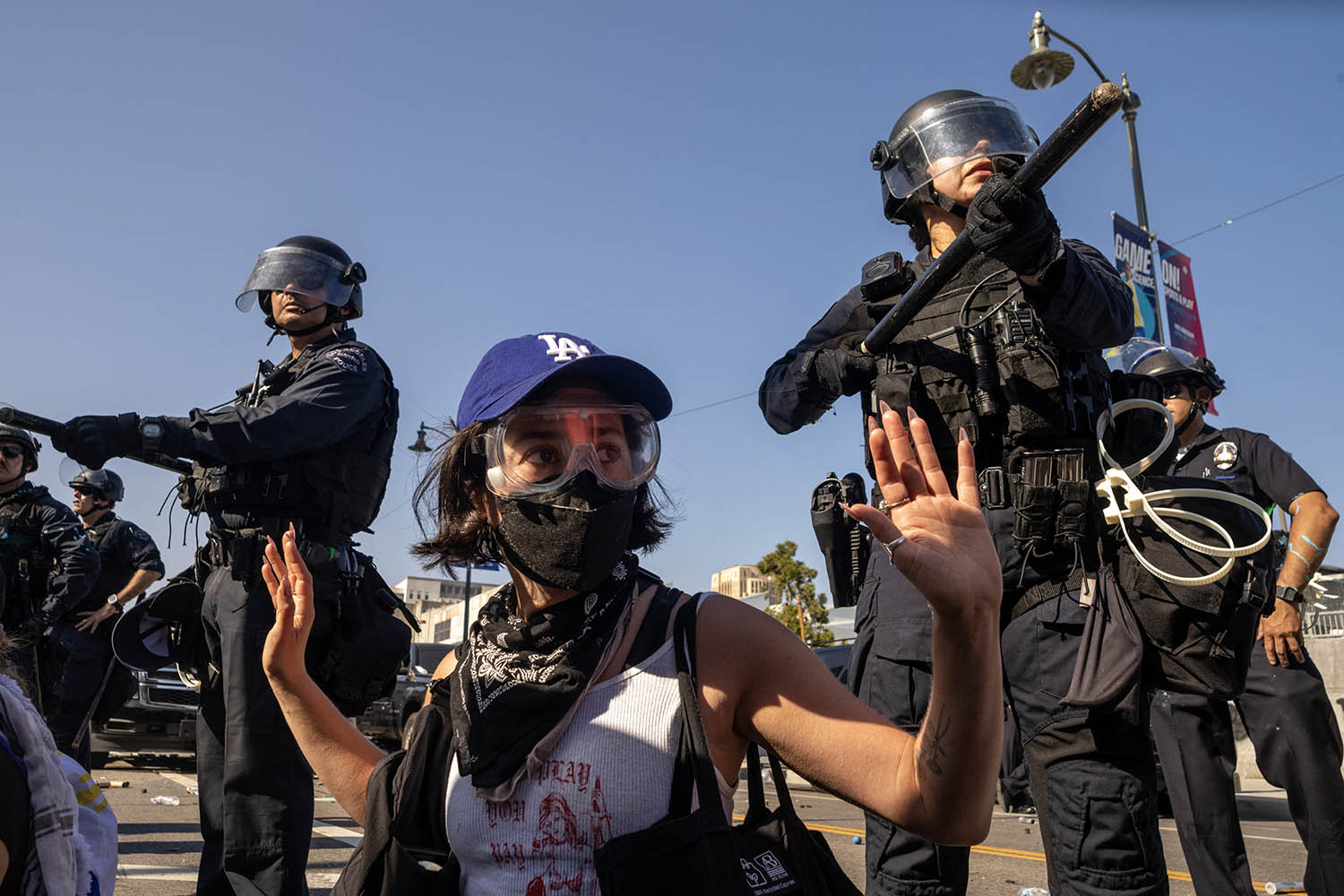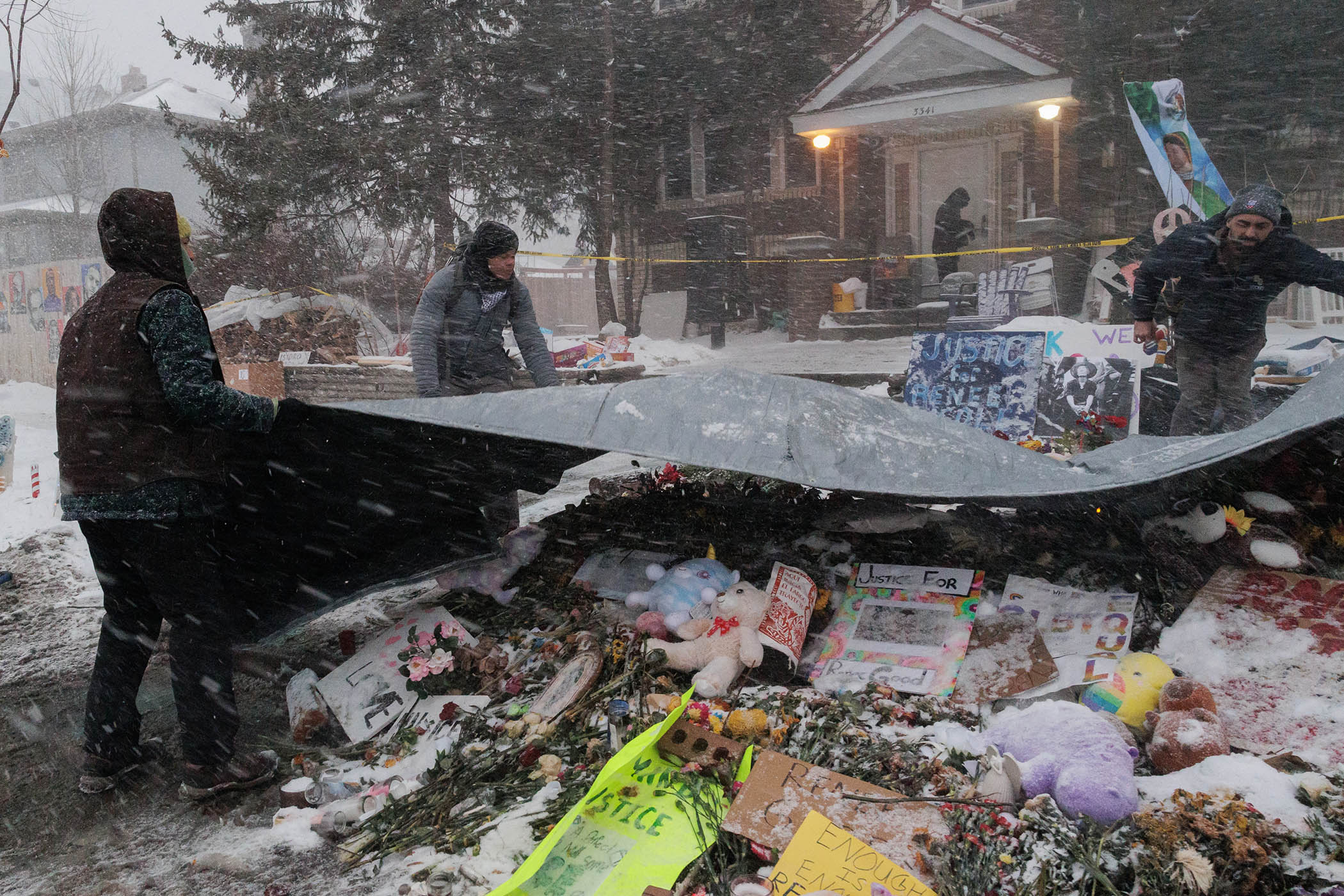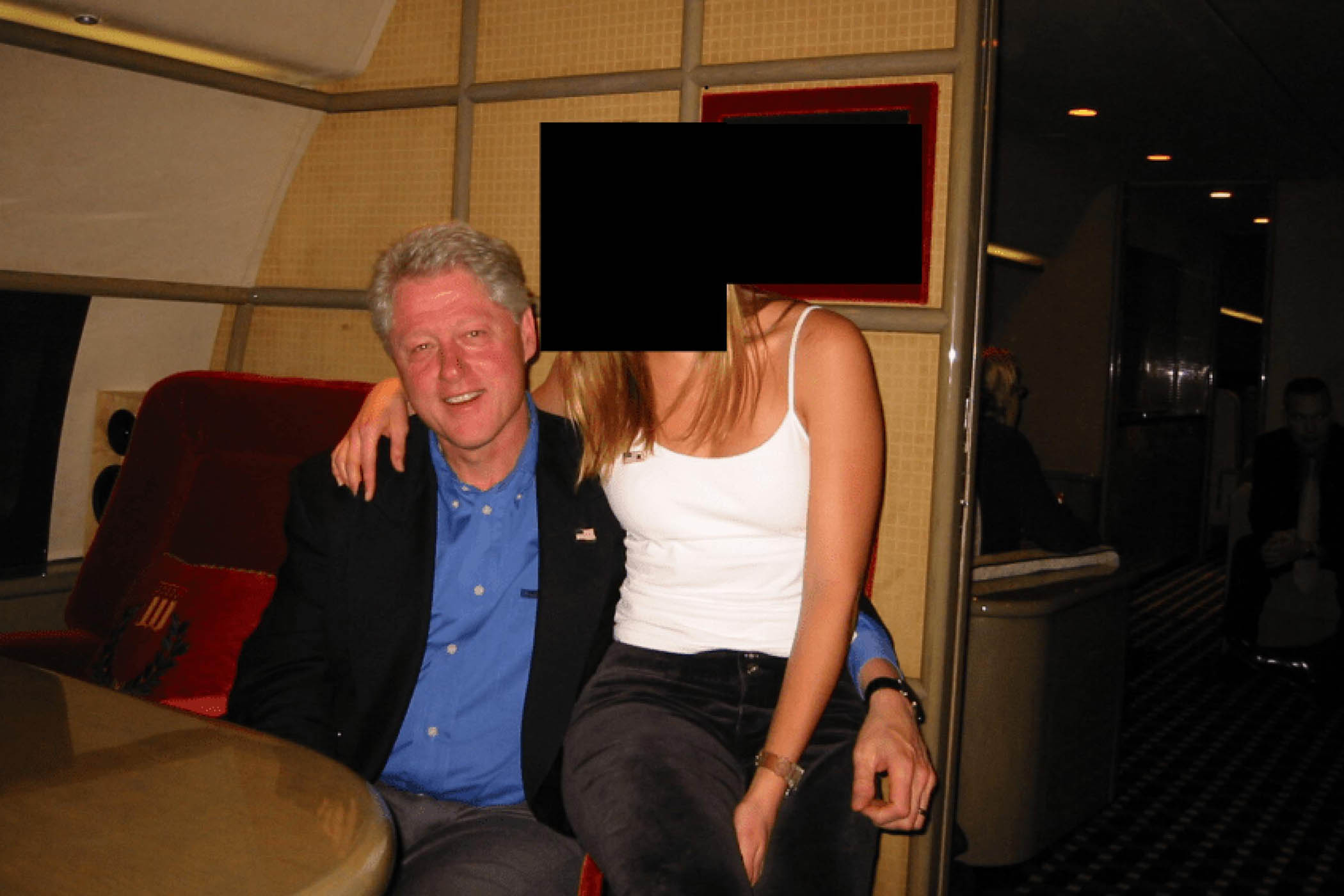As Donald Trump’s immigration crackdown intensifies, some of his closest allies in the private sector stand to profit from ICE raids. The US government is holding more than 48,000 people in immigration detention, with Trump’s border czar, Tom Homan, saying he intends to double that figure.
Facilities run by ICE (Immigrations and Customs Enforcement) are already well beyond capacity. More than 90% of those detained are locked up in private, for-profit prisons run by two companies, GEO Group and CoreCivic, which donated millions to Trump’s reelection campaign. Internal communications from GEO identify the administration’s aggressive border policy as a key source of potential revenue growth this year.
“We stand ready to provide additional services and resources to help ICE meet its future needs,” GEO chairman George Zoley said on a corporate earnings call last autumn, a transcript of which was released by the Securities and Exchange Commission.
Later on the call, chief executive Brian Evans estimated that GEO could generate up to $400m (£295m) in revenues if ICE were to fill its thousands of empty beds. The average cost of detaining an individual migrant in a private facility ranges from $236 to $481 a day, according to data analysis by the American Immigration Council.
On his first day in office, Trump signed an executive order reversing his predecessor’s decision to cancel all Department of Justice contracts with private prison firms.
GEO was the first corporate donor to meet the federal legal limit in donations to his reelection campaign, although the company later paid an additional $1m to Trump’s Super PAC, Make America Great Again Inc, through a subsidiary.
There are reports of physical and sexual assaults, murders and unchecked flow of contraband
There are reports of physical and sexual assaults, murders and unchecked flow of contraband
Henry Leventis, US attorney
CoreCivic president Damon Hininger contributed $300,000 to Trump’s campaign, while his company donated a further $500,000 to the president’s inauguration fund last year.
When Trump ordered the National Guard into Los Angeles last weekend to reinforce an ICE raid on a garment factory, GEO’s share price spiked by 3.09% and CoreCivic’s by 2.9%. Both have nearly doubled in value since the November election.
Related articles:
The relationship between the Trump administration and private prison firms runs deeper than cash. From 2019 until 2024, when she was nominated as Trump’s pick to run the justice department, attorney general Pam Bondi was a lobbyist for GEO. During her nomination hearing before the senate judiciary committee, Bondi was grilled by Democrats over her potential conflicts of interest as the nation’s top-ranking law enforcement officer.
She said that she “[would] consult with the career ethics officials within the department of justice and make the appropriate decision”, but thus far has not recused herself.
Newsletters
Choose the newsletters you want to receive
View more
For information about how The Observer protects your data, read our Privacy Policy
In a holdover case from the Biden administration, Bondi’s office is investigating CoreCivic over what former US attorney Henry Leventis described to the Associated Press as “reports of physical assaults, sexual assaults, murders and unchecked flow of contraband and severe staffing shortages” at Trousdale Turner correctional centre in Tennessee, one of its private detention facilities.
Last Sunday, CoreCivic, formerly known as Corrections Corporation of America, announced that it had used a chemical nerve agent to subdue “disruptive and confrontational inmates” at Trousdale, in an altercation that sent one correctional officer to the hospital and left three inmates with “minor injuries”.
GEO has also been criticised for its treatment of inmates. In 2019, Washington state sued GEO over alleged slave labour practices, claiming it paid immigrant detainees less than $1 a day for maintenance work. In 2021, a unanimous jury found GEO liable, awarding $17.3m in damages to more than 10,000 detainees.
In January, after an appeals court upheld the decision, the company appealed to the supreme court.
The court’s conservative majority, three of whom were appointed by Trump, agreed last week to hear GEO’s argument that it should be granted immunity from class-action lawsuits as a government contractor.
So far, the federal government is well behind its target of 1m deportations a year. Regardless of achieving that figure, GEO’s profits will far outstrip any possible penalties.
Photograph by Ringo Chiu/AFP via Getty



